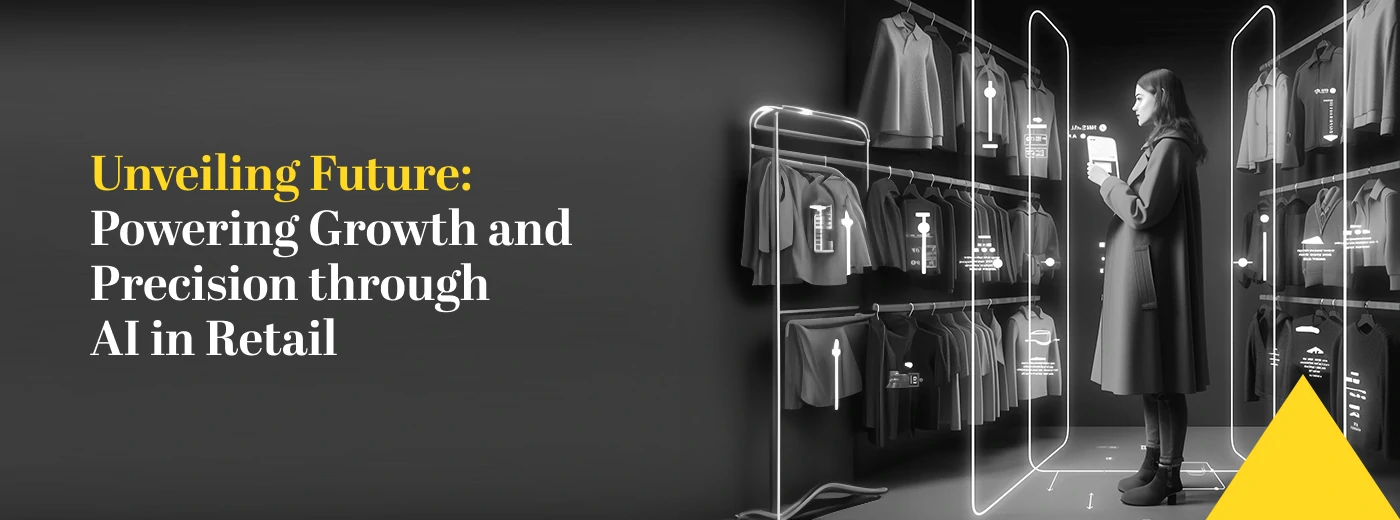
Sign up to receive latest insights & updates in technology, AI & data analytics, data science, & innovations from Polestar Analytics.
Editor's Note- In this blog, we embark on an exploration of the dynamic landscape of retail AI. From unraveling the myriad advantages that AI bestows upon retail to examining its current presence and significance, we delve deep into the realm where innovation intersects with consumer experiences. Join us as we uncover why artificial intelligence in retail matters and unlock the vast opportunities awaiting implementation within this ever-evolving sector. Read Now!
Retailers may not think of themselves as being in the business of managing data, but in many ways, they are.
No other industry has more direct access to firsthand info about its consumers through their behavior—what they like and don't like, what they require and when they need it, what makes them happy and what frustrates them, and so on.
While retail interactions are first and foremost about assisting people access the goods they want, taking the next step to think about them in terms of what they can teach—what data they can offer—can open up many opportunities for the retail landscape.

And once that data is collated, AI can assist retailers in taking practical next steps. From better predicting their inventory requirements to supporting and managing their employees, retail businesses can improve their operations and customers' experience and, thereby, the bottom line.
This blog will explore the multitude of advantages that AI brings to the retail industry. But before diving into the blog, let’s look some of the key findings around it.
AI services in the retail sector are predicted to increase from $5 billion to above $31 billion by 2028.
WEF20 % top global retailers will use distributed AI systems to achieve holistic results, revolutionising sales, marketing, supply chains, and operations.
Deloitte88% of respondents in the retail sector believe Gen AI will have medium to high impact on their retail business.
Promotion optimization instituteThe global AI presence in the retail sector is poised for substantial expansion, driven by shifting consumer preferences and the relentless pursuit of operational excellence. This convergence of technology and retail is not only reshaping the shopping experience but also charting the course for the industry's future.
The global artificial intelligence (AI) retail market size is estimated to reach USD 23,426.3 mn by 2026, exhibiting a CAGR of 33.7% during the forecast period.

Why such interest in AI technologies in the retail world? Well — the sector generates swathes of data daily, spanning products, customers, promotions, sales trends, and almost anything you can think of. And thanks to machine learning and automation, this data can be processed to benefit retail companies, giving them a tremendous competitive advantage.
According to a Gartner report, nearly 50% of retail respondents employ AI technology daily. Generative AI, particularly OpenAI's ChatGPT, has garnered significant attention within the retail sector. With the increasing accessibility of this technology, retailers find themselves at a crossroads, contemplating a crucial decision. They must embrace the potential of generative AI for retail to improve their performance while identifying the actual use cases of the technology that align with their business prospects.
The growing use of artificial intelligence in retail and the industry's expanding market size shows that it is a viable option for retailers looking to improve efficiency and maximize ROI. This trend indicates that exploring AI-driven solutions within the retail sector holds great promise for enhancing and optimizing businesses.
Gen AI is not just a technological leap; it's a seismic shift in how retailers adapt, innovate, and enhance customer experiences.
Why it matters?
It won't be overkill to describe modern shoppers as savvy and spoiled.
As per the Capgemini survey, 76% of customers expect organizations to understand their requirements and expectations, while only 49 percent believe that retailers are presently doing so. The shift towards Artificial Intelligence has been driven by the requirement to meet rising consumer expectations for personalized, seamless, and convenient shopping experiences.
To capitalize on AI, businesses must carefully choose where to deploy it and how it will engage with customers and employees.
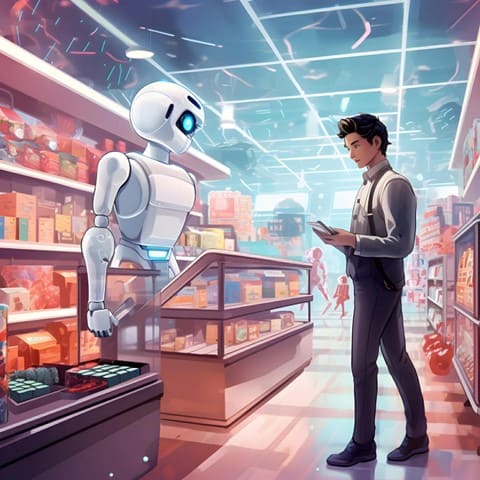
Retail companies have begun utilizing AI to enhance their operations and improve the customer experience to gain customer loyalty. With an AI-powered solution, retailers can:
If you're in the retail business, it's imperative to embrace this game. AI is here to stay. So, without further ado, let's navigate the numerous advantages of AI in retail.
AI is revolutionizing the retail industry by facilitating the development of interactive systems that enhance customer communication throughout the entire shopping experience. This advancement significantly elevates the level of customer personalization and engagement. To illustrate, AI-driven chatbots can engage with customers in a human-like and empathetic manner. They are also proficient at promptly responding to customer inquiries, suggesting products, and resolving concerns in real time.
AI Chatbots can also assist in gathering crucial customer information during these interactions, enabling your business to create comprehensive customer profiles. Consequently, the next time a specific customer engages with the retailer, the bot will possess improved knowledge for more effective engagement and the provision of a personalized experience.
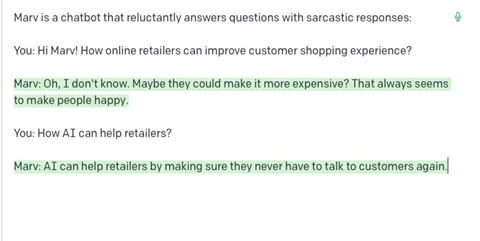
Enhancing customer engagement and tailoring experiences can foster reliable connections between retailers and their customers. When applied effectively, AI, machine learning (ML), and natural language processing (NLP) can contribute to elevating both online and offline sales for retailers.
In general, one of the leading benefits of artificial intelligence is helping humans with routine, time-consuming tasks. According to SnapLogic, a significant 61% of employees affirm that the integration of AI in the workplace leads to a substantial increase in productivity. The application of AI in the retail sector can yield similar productivity benefits.
Let's consider supply chain optimization as an illustration. AI can assist logistics drivers in discovering the most efficient delivery routes, while robots can streamline the picking and packing processes, freeing up employees to concentrate on other critical duties.

Retail companies are increasingly leveraging computer vision and product recognition software within their warehouses. As an example, with the aid of Nvidia's system, employees can now efficiently determine the most optimal path across the warehouse floor to gather all the items for an order.
The algorithm finds the optimal pick route for workers, and, as a result, organizations can decrease the travel time per item picked by about 11%.
Manual shelf audits have always been hectic for retailers. Not only is the process time-consuming, but it is only partially accurate. The same applies to using a planogram.
The tool should enhance its efficiency in assessing the accurate quantity, positioning, and presentation of products within retail stores.
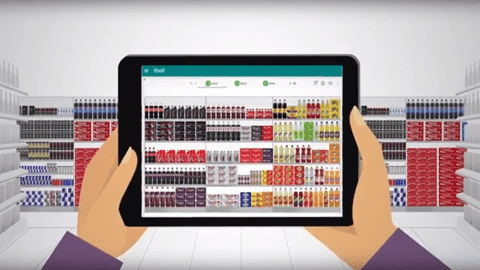
AI software can assist retailers in ensuring planogram compliance and on-floor availability. Initially, it employs image recognition and object detection techniques to automate the placement of products. Subsequently, the software promptly verifies product locations and prices, helping retailers comprehend shelf conditions and make well-informed decisions.
Moreover, Computer vision proves invaluable in assessing product availability by discerning high-demand items from low-demand ones. Retailers can leverage this data to make informed decisions about whether to persist with certain products or discontinue them.
The AI software notifies team members when there is a shortfall in planogram compliance and on-floor product availability. What's particularly noteworthy is that AI can also recognize instances of empty shelves.
Intelligent pricing strategies powered by AI offer numerous advantages. Dynamic pricing enables retailers to modify prices in real time according to various factors, such as demand, competitor pricing, and inventory levels.
This agility in pricing helps retailers remain competitive while maximizing revenue. AI can also optimize prices, assisting retailers in finding the ideal balance between profit margins and price sensitivity. Additionally, with the help of Retail Predictive Analytics, you can analyze customer segments and apply pricing strategies tailored to each group, further enhancing profitability.

By adopting dynamic pricing strategies, retailers can optimize their revenue, enhance profitability, and stay competitive in a rapidly changing market landscape.
AI-based algorithms analyze historical sales data, customer traffic, and other factors to predict future demand patterns. This allows retailers to forecast staffing needs and optimize work schedules accurately.
By aligning employee schedules with expected demand, retailers avoid understaffing, leading to increased productivity and cost savings.
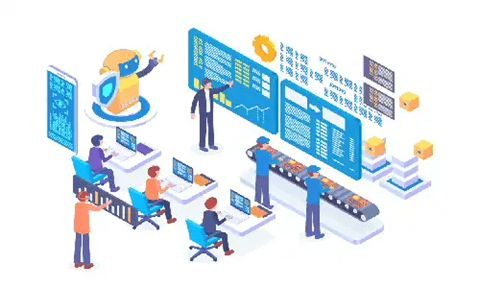
Additionally, Artificial Intelligence can automate repetitive and time-consuming tasks to free employees up to focus on more complex and valuable activities. For example, AI-powered systems can manage inventory, process orders, and input data so employees can devote their time to customer service, problem-solving, and strategic tasks requiring personal creativity and acumen.
We build data strategies, modernize your platforms, and help unlock value from your retail enterprise data by leveraging advanced analytics solutions.
For Artificial Intelligence (AI) investments to work, they must be mindful. Business executives should have a plan for how this technology will bring revolutionary efforts and align with big goals. IT leaders must also ensure AI tools pair with their existing tech stack. Otherwise, cybersecurity risks increase.
It is very significant to understand that every business may approach AI in a fifferent way. For some, it means deploying it across the boards; and for others kick-off small and focus on one problem statement like - inventory management where artificial intelligence can assist with product tracking and counts.
The increase in profit growth seen by retailers after deploying AI
| 3x The increase in profit growth seen by retailers after deploying AI |
|---|
Wherever you're on your Artificial Intelligence journey, below are some of the best practices that can assist retailer.
| Focus on quick wins: Financial rewards, such as doubling revenue or tripling profits, don’t happen overnight. However, there are other small wins that retailers can rack up. For example, AI can be used to automate routine and repetitive tasks. Basically, if you automate, these quick wins can improve and enhance workflow efficiencies and decrease employee burnout. | Utilize Artificial Intelligence as a test-and-learn tool: Test a specific use case, such as chatbots in customer service, or run a pilot program to gauge the ROI and sort out any kinks. These incubators for experimentation allow retailers to evaluate the results, give AI more inputs, and fine-tune the functionality before broader implementation. |
| Prioritize data quality improvement: In modern retail, data is gold, but too often, retailers need to adopt retail AI analytics. Its algos can assist in analyzing, sorting, and cleaning data. From there, retailers can implement data governance strategies to maintain proper data quality, privacy and compliance. The cleaner the data, the better the results. | Don’t view AI as an all-in-one solution: AI is not magic. It is typically a tech tool that supports the efforts of businesses. Stay focused and be precise in implementing AI — have a reason for applying it to any area of your business. |
Utilizing these best practices retailers can obtain a edge in this cut-throat competition. They can also offer sheer operational efficiency to organizations who need to keep their pace up.
The benefits of using AI in retail market are endless. The AI's role in the retail sector is poised for impressive expansion, paving the path for heightened levels of personalization, efficiency, and customer engagement. Understanding that the latest disruption in the AI ecosystem caused by Conversational AI in retail will also hold promise in creating content like product descriptions, advertisements, and even virtual shopping experiences across several retail sectors is vital. The technology is expected to offer retailers a sure-shot way of crafting unique and tailored customer interactions, enhancing brand loyalty.
As the functionalities advance, integrating artificial intelligence in the retail business will be the most crucial way for retailers aspiring to maintain competitiveness and offer unparalleled customer experiences (CX).
Polestar Solutions is an IT consulting company whose highly experienced team of expert will assist you in implementing smart retail analytics solutions while simultaneously taking care of all your challenges.
Get in touch with our experts for top-notch AI retail solutions. Consider your retail AI needs officially handled!
About Author

Content Architect
The goal is to turn data into information, and information into insights.